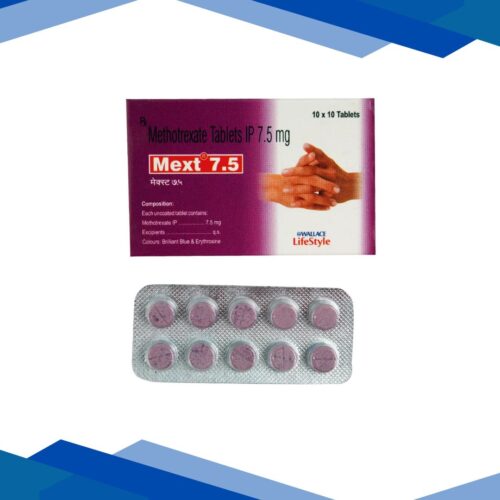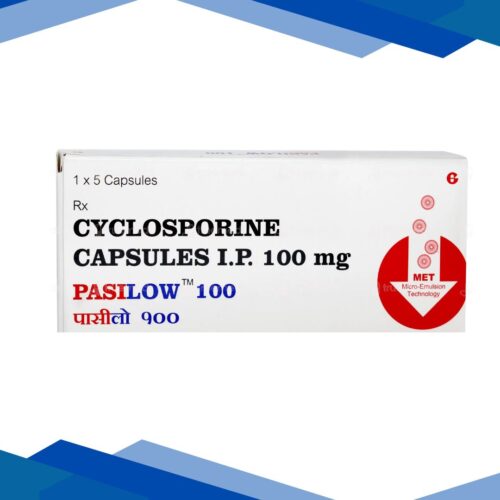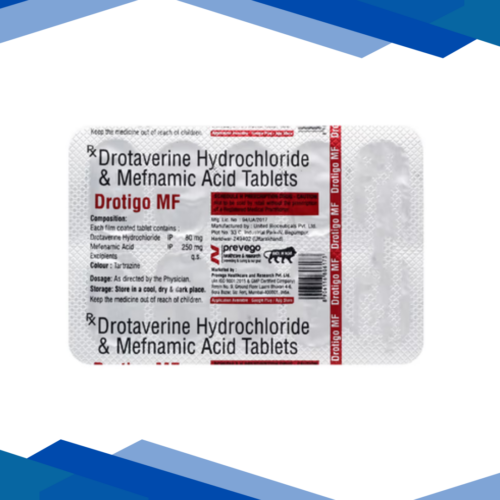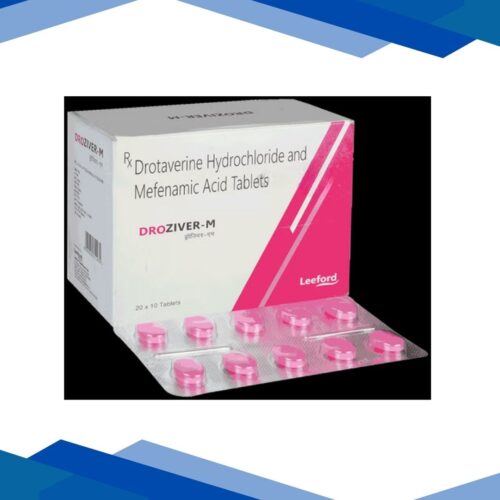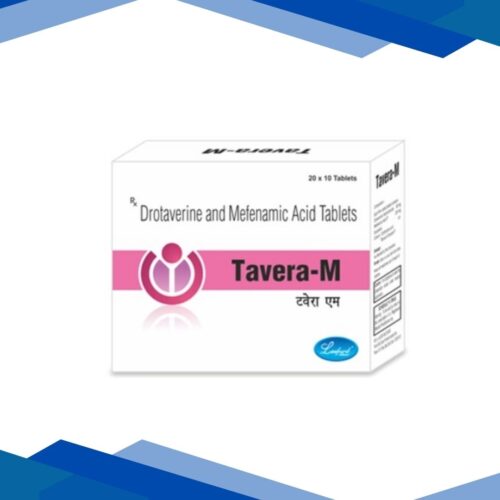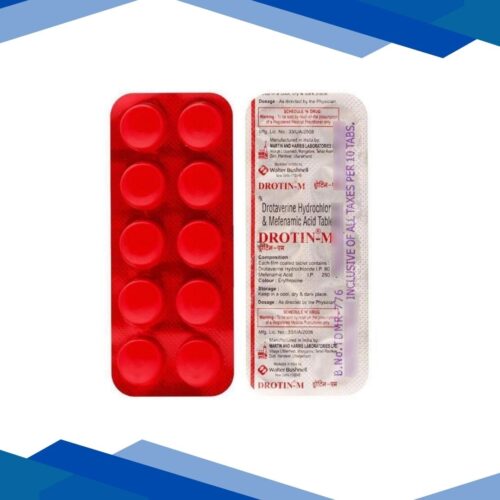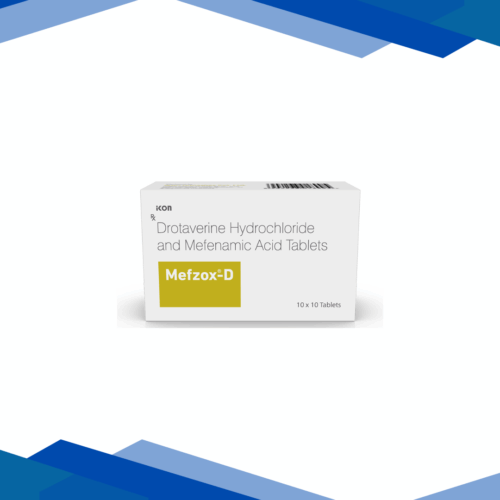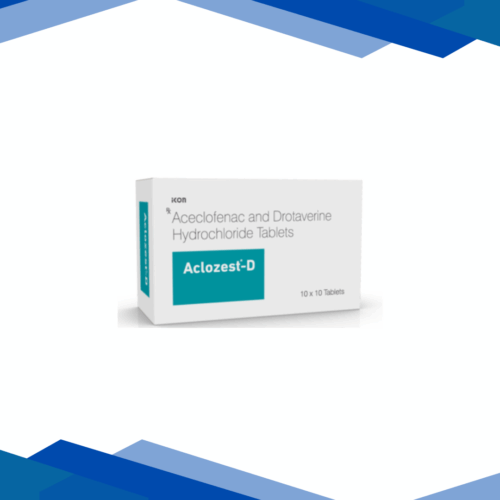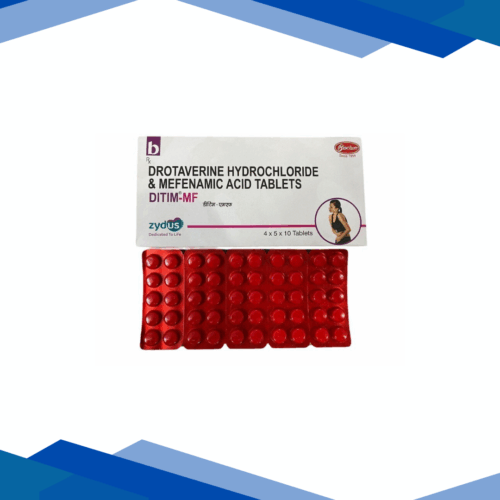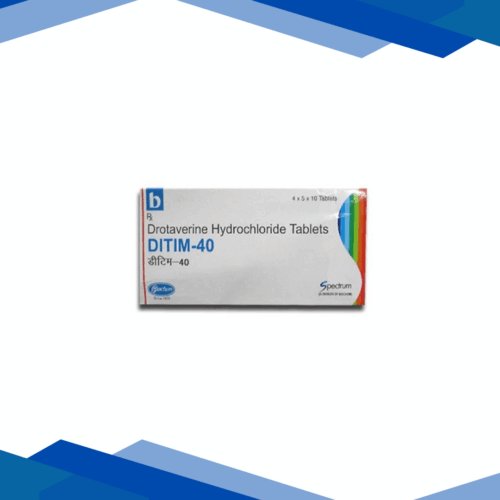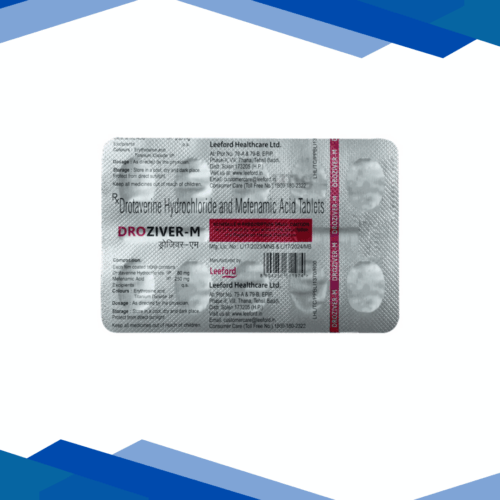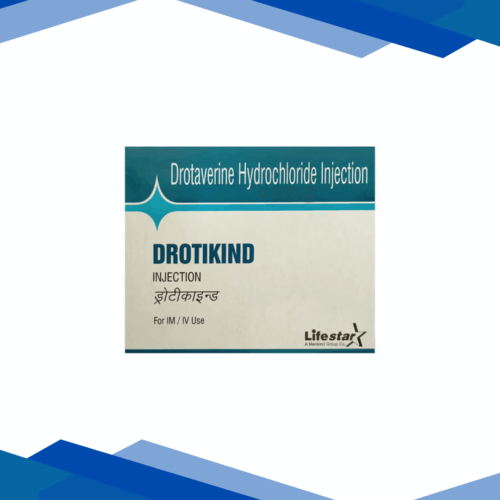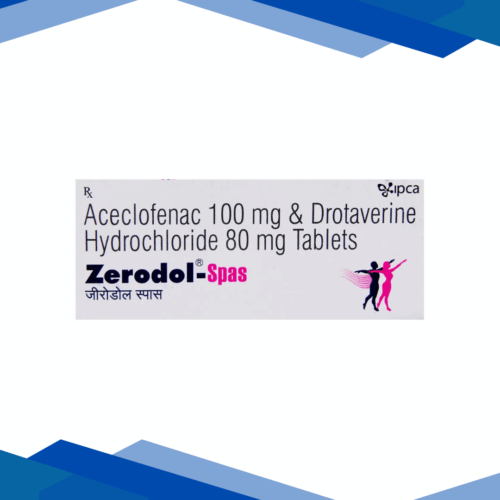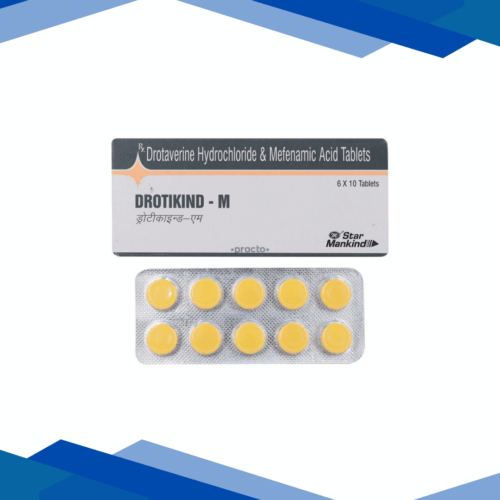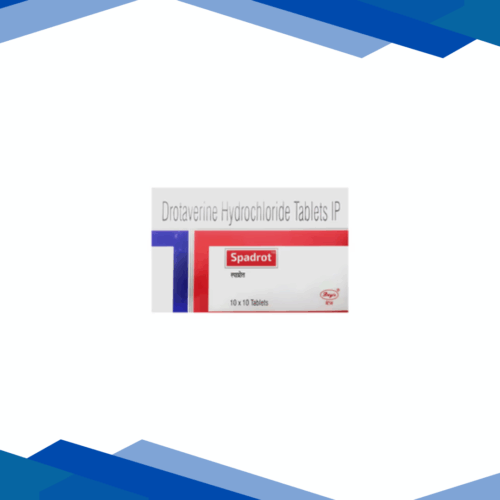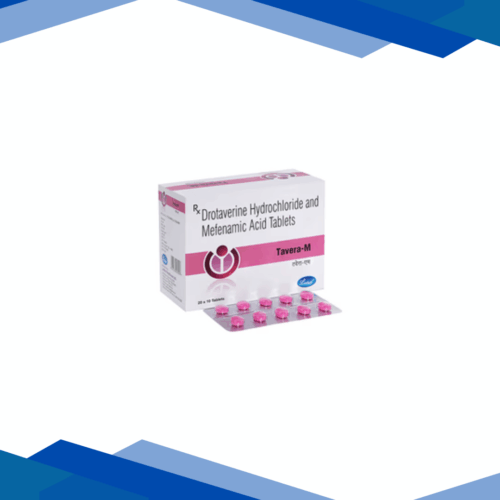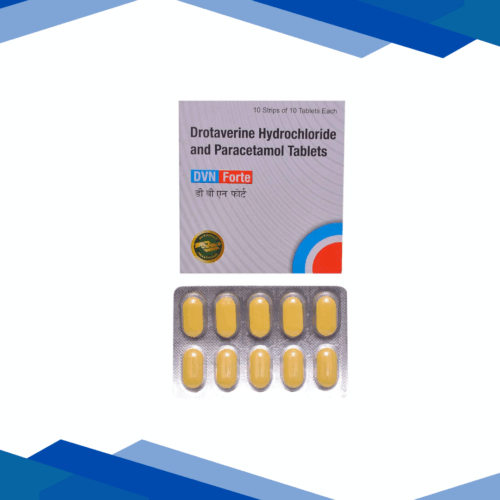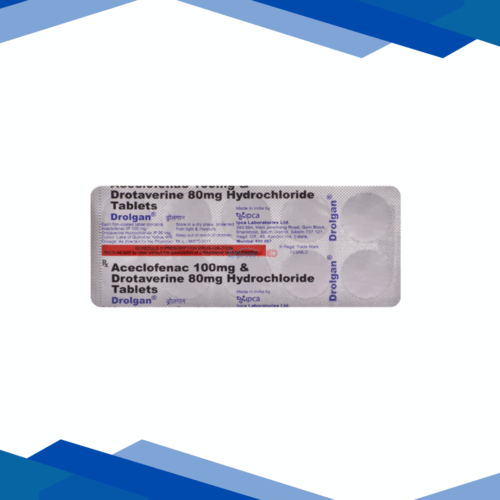DROTAVERINE HYDROCHLORIDE
Overview
Drotaverine hydrochloride is widely used to reduce pain and discomfort caused by involuntary muscle contractions in the stomach, intestines, urinary tract, and uterus. It is commonly prescribed for abdominal pain, menstrual cramps, and urinary spasms. It comes in the form of oral tablets or injections for fast relief.
Classification
Antispasmodic medicine
Uses
Helps relieve stomach and intestinal cramps caused by indigestion, gas, or colic
Eases menstrual pain and uterine spasms
Reduces discomfort from kidney stones or gallbladder pain
Used in urinary tract infections or spasms to relax bladder muscles
Sometimes given to speed up labor by relaxing the cervix and uterus
How It Works
Drotaverine hydrochloride works by blocking the action of a specific enzyme (phosphodiesterase-4) involved in muscle contraction. This leads to the relaxation of smooth muscles, which reduces pain and improves movement in affected areas like the intestines, uterus, or urinary system.
Dosage
As prescribed by your doctor.
Side effects
Most people tolerate it well, but some may experience:
Nausea or vomiting
Headache or dizziness
Drop in blood pressure (hypotension)
Flushing or excessive sweating
In rare cases: allergic skin reactions or palpitations
Precautions
Avoid use in people with severe liver, kidney, or heart conditions unless advised by a doctor
May cause drowsiness or lightheadedness—be cautious while driving or doing tasks requiring focus
Not recommended during the first trimester of pregnancy unless specifically prescribed
Let your doctor know if you have glaucoma, prostate enlargement, or low blood pressure
Do not exceed the prescribed dose, especially if combining with other painkillers or muscle relaxants
Disclaimer
This content is for informational purposes only. Always consult a healthcare provider for medical advice and proper dosage





